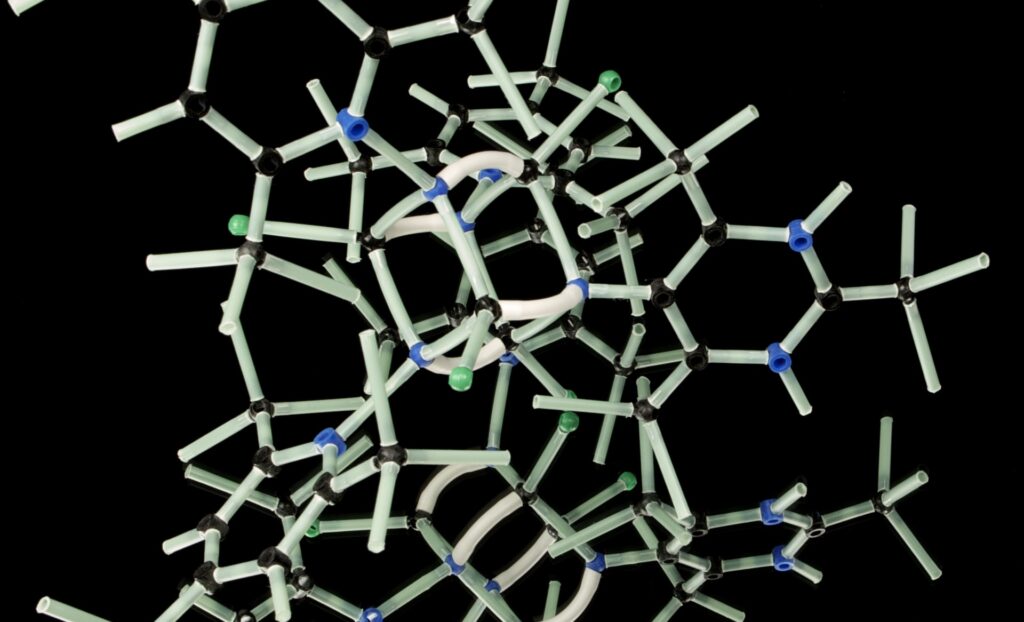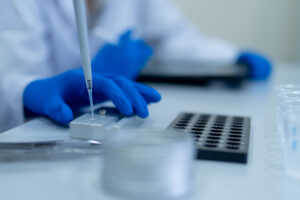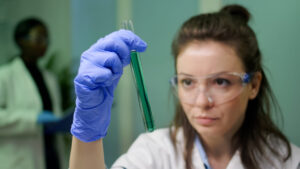The human genome, described below, is the total of all the component genes in the body. It is the code and a major part of the operating system for the human body. If something has gone wrong in the genome, or is likely to, it is best to know about it sooner rather than later. Genetic screening tests and genetic health testing can identify and single out changes in genes and their main components: strands of DNA, chromosomes, or proteins.
What are genes?
A chromosome is a long strand of DNA twisted up with a variety of proteins. A chromosome holds many genes. Proteins can control structure, muscle, enzymes, and hormonal cell signaling in the body, among other tasks. Errors or changes in proteins can cause disease, disorder, and dysfunction.
A gene is a basic component of your genetic material. Genes are made up of short sections of DNA (deoxyribonucleic acid) that sit in certain spots on a chromosome. Each gene holds the code for a specific amino acid sequence of a specific protein that operates in one or more kinds of cells in the body. Genes and their sequencing manage the many features and functions of the human body. A gene is made up of many pairs of nucleotides, the smallest components of DNA, which match up in pairs to form the long double strands of DNA molecules.
The variations in genes make up a great percentage of all our differences and quirks, from blue eyes or brown to talent (or lack of it) for sports, or even a fear of heights. Of course, environment, experience, and personal choice have a lot to do with how our lives will go and who we will be. But it all starts with the genetic code mapped into us before we are born.
What is genetics? Why get a screening test?
Genes and their components are hereditary, meaning they are passed from parent to child. The study of heredity, and genes, is called genetics. Each gene is one of a pair, with one gene of each pair inherited from the mother, and the other from the father. A single chromosome holds hundreds of genes, with twenty to twenty-five thousand genes in all for every human being.
Changes in chromosomes or genes, called mutations, can bring about, or raise the risk of, a disease or disorder. Genes can sustain damage both in the developing fetus during pregnancy, and after birth, whether because of aging or due to a variety of possible environmental hits taken by the body. Cells in the human body multiply constantly and the genetic information must stay the same, with multiple mechanisms and fail-safes designed to replicate or kill off segments as needed. Mistakes can occur in this process, or other issues can crop up with genetic material. Problems and irregularities in genes can create or trigger genetic diseases.
Genetic screening tests including genetic diagnostic testing, check to see whether everything is working as it should be, and, more specifically, they screen for particular syndromes or disorders. They can show how likely it is that the person being tested already has, or may have a tendency to develop a serious condition.
Three main types of genetic screening tests
Molecular genetic tests (or gene tests) including DNA studies, chromosomal genetic tests, and biochemical genetic studies are the three main types of genetic screening tests. Cancer susceptibility screening is usually done via a DNA test.
Gene tests and DNA studies
Single genes or short lengths of DNA are used to identify large changes, such as a gene with a missing part or an added section, and small alterations such as an absent, added, or changed part within the strand of DNA. These genes or DNA length samples are taken from blood or bodily fluids such as saliva.
This type of testing has its limits. It cannot tell you what conditions appear or could develop if the genetic mutation that causes it is not known.
When a DNA copying error or mutation causes a permanent change in the DNA, it can cause a variety of possible diseases. So, for instance, the specific gene mutation that causes Huntington’s disease can be tested for. If it’s there, or not there, that is simple enough to discover.
But for other conditions, such as diabetes, there are so many possible mutations that can cause it in a specific gene, that genetic testing for this and similar disorders is next to impossible.
Chromosome testing
With this type of rare disease genetic testing, the makeup of the chromosomes is examined: formation, amount, and component positioning. If a portion of the chromosome is gone, is redundant, or has migrated to the wrong section of the chromosome or even another chromosome altogether, this can cause serious problems.
For this type of testing, karyotyping gives, in essence, a snapshot of the chromosomes. This is a good way to note changes in chromosome numbers. So, extra chromosomes can cause, for example, Down syndrome or Trisomy 16, the most common trisomy that can lead to miscarriage. FISH analysis (fluorescent in-situ hybridization) examines certain parts of chromosomes and can find tiny pieces of chromosomes that are missing or extra. This can cause, for instance, Duchenne muscular dystrophy.
Biochemical testing
This examines the amounts and activity of certain key proteins. Since genes hold the DNA protein-making code, irregularities in the number or activity of proteins can be a marker for dysfunctional genes.
Biochemical genetic screening is often used to test infants to detect syndromes and disorders that can affect the critical metabolic chemical reactions in the body.
How can genetic screening tests benefit you or your child?
For babies and children with a wide range of either common or rare diseases, genetic counseling can be a crucial step in determining whether and how to intervene, and how to offer the best possible outcomes for their health, comfort, development, social feelings, and to help plan their optimal futures.
Adults with a variety of symptoms may consider genetic screening tests for health conditions that they feel they may suffer from, or that their medical professional has recommended or referred them to.



